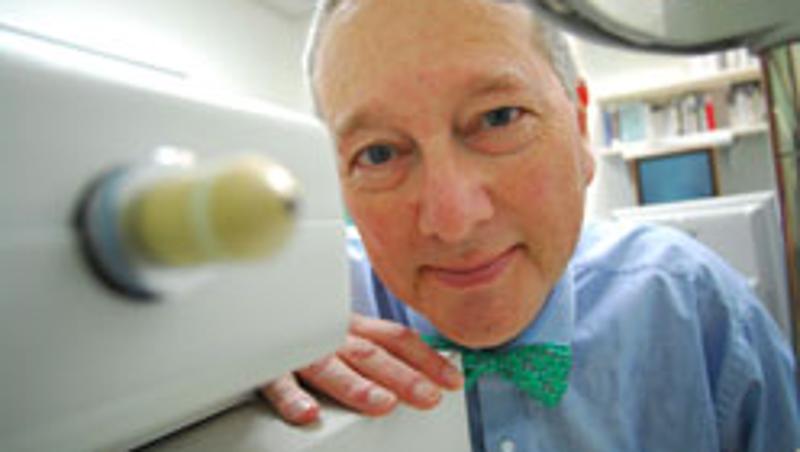
A study that will use a simple eye test to save the lives and limbs of diabetics is one of seven QUT projects funded in the latest round of National Health and Medical Research Council grants.
Research Professor Nathan Efron will use a breakthrough technique to develop the use of an optical instrument capable of looking at the cornea - the clear window at the front of the eye - under high magnification to assess a painful condition known as diabetic neuropathy.
The NHMRC awarded QUT almost $4 million to fund six research projects which will improve health and medical outcomes for Australians.
Professor Efron, from QUT's Institute of Health and Biomedical Innovation, will use a $90,000 corneal confocal microscope, one of only a handful in the country, to further research and validate the diagnostic technique.
"Diabetic neuropathy is a nerve disorder caused by diabetes," Professor Efron said.
"It is a significant clinical problem which affects up to 50 per cent of diabetic patients and which currently has no effective therapy.
"It can be very painful and can also result in numbness and tingling to the hands, feet, or legs and in advanced cases is a major cause of morbidity and mortality worldwide."
He said current tests for directly assessing the state of the nerves in diabetic neuropathy involved taking a skin biopsy from the patient's foot and then running tests which could take up to three days.
"Using a corneal confocal microscope diabetic neuropathy can now be diagnosed in a couple of minutes," he said.
"By looking closely at the nerve fibres in the eye we can see whether there is damage to the nerves and thus pinpoint whether or not a patient is suffering diabetic neuropathy.
"The benefit of this new technology is that it's instant, non-invasive and painless, and it appears that it can diagnose this condition much earlier than is currently being done."
Other projects to be funded include:
- A study to improve successful long-term weight loss by deactivating the human famine reaction.
- An assessment of solar UV exposure for Vitamin D synthesis in Australian adults
- A trial of video-delivered intervention for the early detection of melanoma in men 50 years and over
- A study of change in physical activity in mid-age and factors associated with change.
Media contact
- Sandra Hutchinson, QUT media officer, 07 3138 2130 or s3.hutchinson@qut.edu.au
** A high resolution photo of Professor Efron is available for media use


